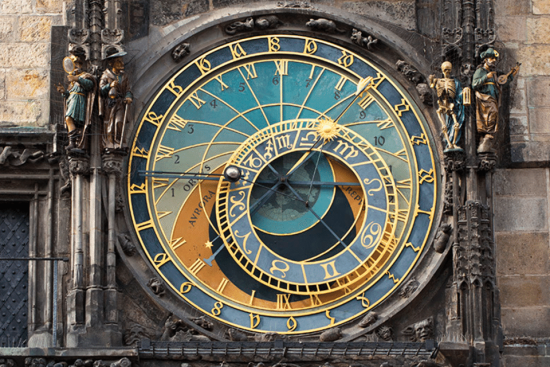
A Brief Economic History of Time
“The age of exploration and the industrial revolution completely changed the way people measure time, understand time, and feel and talk about time,” writes Derek Thompson of The Atlantic. “This made people more productive, but did it make them any happier?”
In a wide-ranging essay touching upon the advent of the wristwatch, railroads, and Daylight Saving Time, Thompson reveals how the short-term time frames in our day-to-day experience that are so familiar to us — concepts like the work day, happy hour, the weekend, and retirement—were inventions of the last 150 years of economic change:
Three forces contributed to the modern invention of time. First, the conquest of foreign territories across the ocean required precise navigation with accurate timepieces. Second, the invention of the railroad required the standardization of time across countries, replacing the local system of keeping time using shadows and sundials. Third, the industrial economy necessitated new labor laws, which changed the way people think about work.
“So much of what we now call time,” concludes Thompson, “is a collective myth.” This collective myth helped power the industrial revolution and make our modern world. But, as Stewart Brand wrote at the founding of the Long Now Foundation, it has also contributed to civilization “revving itself into a pathologically short attention span”:
The trend might be coming from the acceleration of technology, the short-horizon perspective of market-driven economics, the next-election perspective of democracies, or the distractions of personal multi-tasking. All are on the increase. Some sort of balancing corrective to the short-sightedness is needed-some mechanism or myth which encourages the long view and the taking of long-term responsibility, where ‘long-term’ is measured at least in centuries. Long Now proposes both a mechanism and a myth.
You can read Thompson’s essay in its entirety here.
Join our newsletter for the latest in long-term thinking
Subscribe